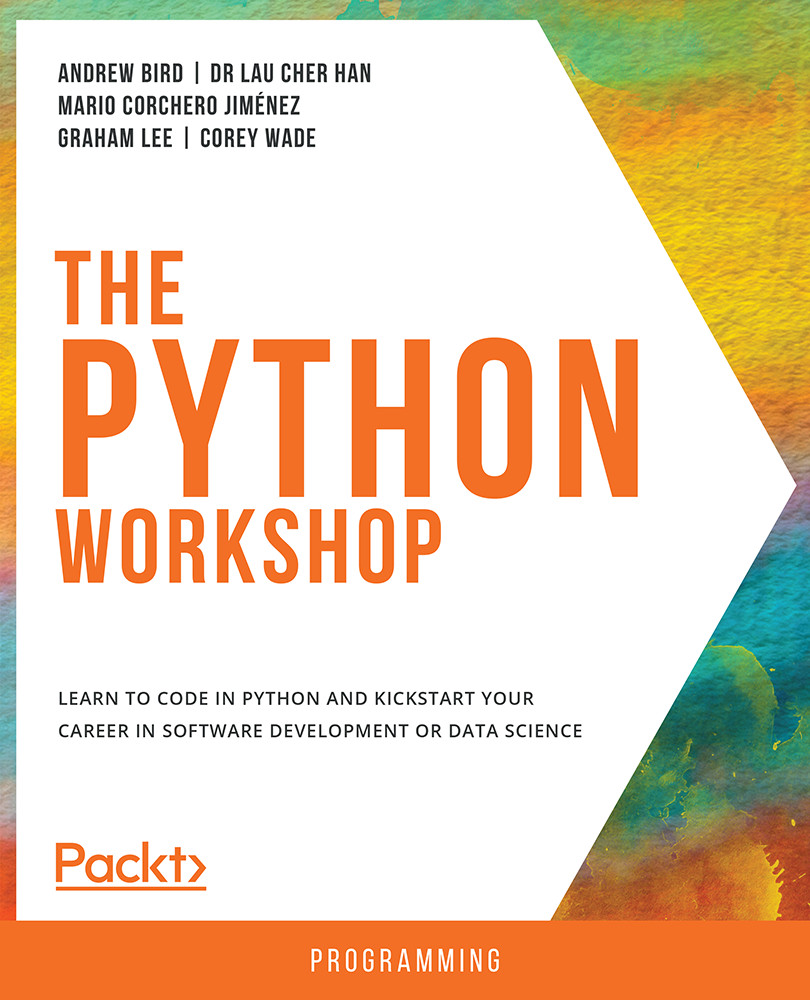-
Book Overview & Buying

-
Table Of Contents

The Python Workshop
By :

The Python Workshop
By:
Overview of this book
 Free Chapter
Free Chapter
 Sign In
Start Free Trial
Sign In
Start Free Trial


 Free Chapter
Free Chapter
The Pythonic secret that enables comprehensions to find all of the entries in a list, range, or other collection is an iterator. Supporting iterators in your own classes opens them up for use in comprehensions, for…in loops, and anywhere that Python works with collections. Your collection must implement a method called __iter__(), which returns the iterator.
The iterator itself is also a Python object with a simple contract. It must provide a single method, __next__(). Each time __next__() is called, the iterator returns the next value in the collection. When the iterator reaches the end of the collection, __next__() raises StopIteration to signal that the iteration should terminate.
If you've used exceptions in other programming languages, you may be surprised by this use of an exception to signal a fairly commonplace situation. After all, plenty of loops reach an end, so it's not exactly an exceptional circumstance. Python is not so dogmatic about...

Change the font size
Change margin width
Change background colour